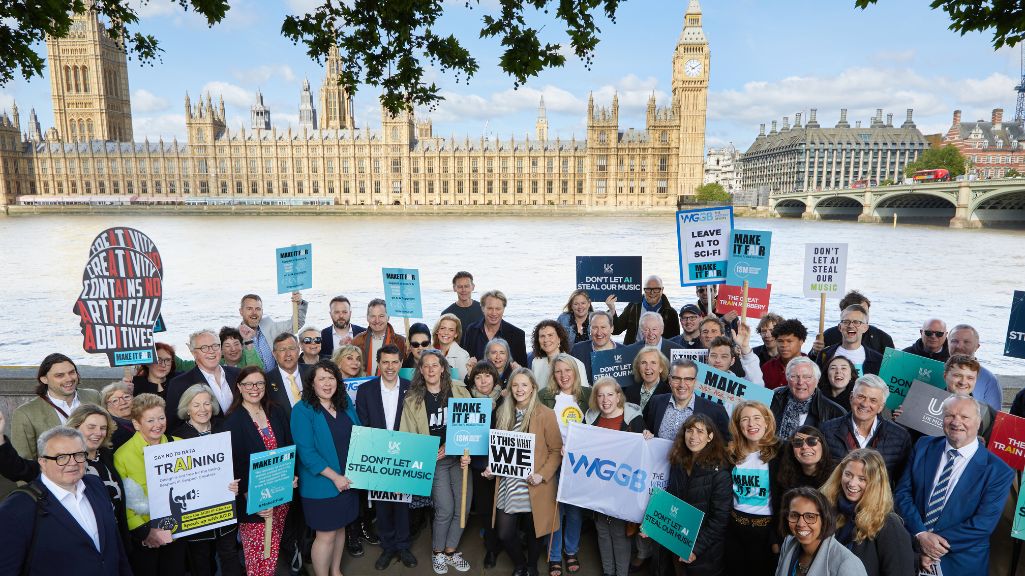MPA joins the industry’s call to the government to regulate AI tech firms

Date
Yesterday (7 May), the Music Publishers Association joined industry representatives, musicians and politicians opposite the Houses of Parliament, to show a collective commitment to protecting rightsholders in terms of consent, compensation and transparency from AI tech firms.
The event coincided with a Parliamentary debate which saw MPs discuss the government’s Data Use and Access Bill, which is primarily concerned with data-sharing agreements in public services, but also includes amendments related to generative AI.
Creative industry leaders are demanding that the Government adopt key amendments to the Bill, which would require AI companies to disclose whether human creators’ work has been used in training AI models and would allow rightsholders to enforce their rights under existing copyright rules.
Unfortunately, the amendments related to AI and copyright were not taken up, with the government arguing that the amendments pre-empted the results of its AI and Copyright consultation, which closed in February 2025. As a concession, government ministers promised to conduct an economic impact assessment of the policy options put forward in their AI and Copyright consultation.
Chief Policy & Public Affairs Officer at MPA, Ornella Akanga, said:
“It’s encouraging to see politicians from across the political spectrum standing alongside creative industry leaders in defence of rightsholders’ interests. Today’s strong turnout highlights the growing momentum behind the Campaign for Creative Rights in AI. We urge the government to take these concerns seriously and respond with meaningful action. We are at a pivotal point, and the decisions made now will shape the future of both our creative industries and the ethical development of AI.”
Chief Executive at MPA, Paul Clements, said:
“Transparency is not a nice-to-have; it is an essential requirement to safeguard against the unethical and illegal practices that threaten both the integrity of creative industries and public trust in AI technologies. Just as the government requires rigorous record-keeping in sectors like financial services and food manufacturing, where public wellbeing and economic stability are at stake, the same principle should apply to the use of our rights holders’ IP in AI technologies. Given AI’s growing influence on the music industry and its broader societal impact, implementing transparency measures is not just prudent – it’s imperative.
Despite the government’s decision not to take up the amendments relating to AI and copyright within the Data Use & Access Bill, the MPA will continue to advocate for stronger protections and transparency for rightsholders. We hope to see the government reconsider transparency measures when it responds to its AI and Copyright consultation in the summer.”
ENDS
Share article